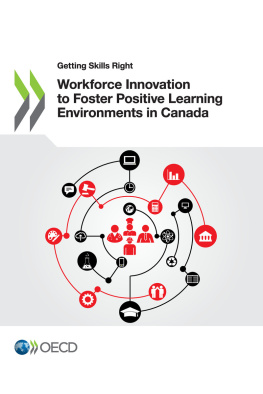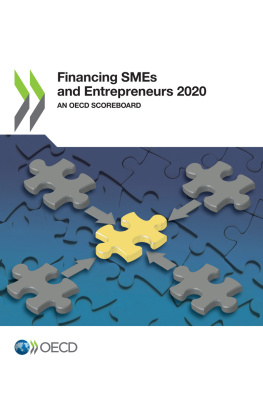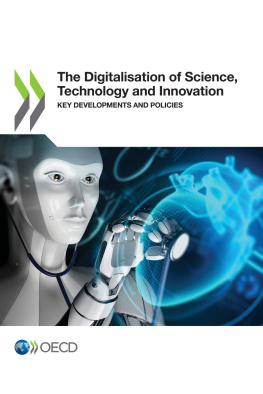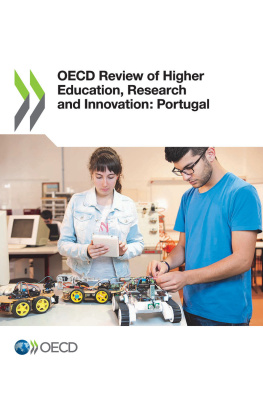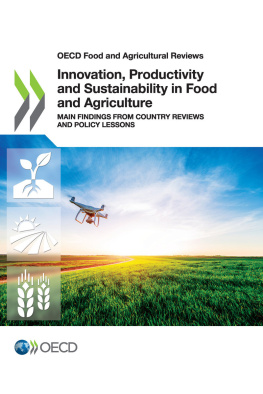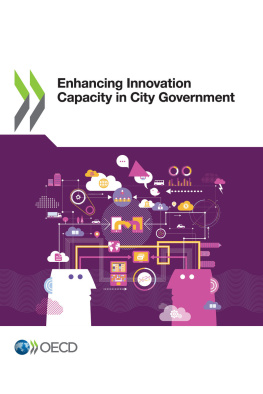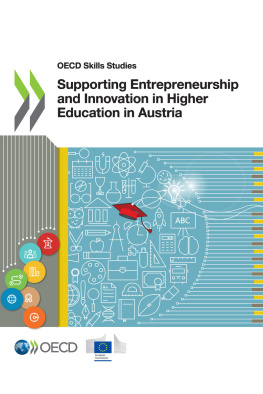OECD - Workforce Innovation to Foster Positive Learning Environments in Canada
Here you can read online OECD - Workforce Innovation to Foster Positive Learning Environments in Canada full text of the book (entire story) in english for free. Download pdf and epub, get meaning, cover and reviews about this ebook. year: 2020, publisher: OECD Publishing, genre: Politics. Description of the work, (preface) as well as reviews are available. Best literature library LitArk.com created for fans of good reading and offers a wide selection of genres:
Romance novel
Science fiction
Adventure
Detective
Science
History
Home and family
Prose
Art
Politics
Computer
Non-fiction
Religion
Business
Children
Humor
Choose a favorite category and find really read worthwhile books. Enjoy immersion in the world of imagination, feel the emotions of the characters or learn something new for yourself, make an fascinating discovery.
Workforce Innovation to Foster Positive Learning Environments in Canada: summary, description and annotation
We offer to read an annotation, description, summary or preface (depends on what the author of the book "Workforce Innovation to Foster Positive Learning Environments in Canada" wrote himself). If you haven't found the necessary information about the book — write in the comments, we will try to find it.
OECD: author's other books
Who wrote Workforce Innovation to Foster Positive Learning Environments in Canada? Find out the surname, the name of the author of the book and a list of all author's works by series.
Workforce Innovation to Foster Positive Learning Environments in Canada — read online for free the complete book (whole text) full work
Below is the text of the book, divided by pages. System saving the place of the last page read, allows you to conveniently read the book "Workforce Innovation to Foster Positive Learning Environments in Canada" online for free, without having to search again every time where you left off. Put a bookmark, and you can go to the page where you finished reading at any time.
Font size:
Interval:
Bookmark:
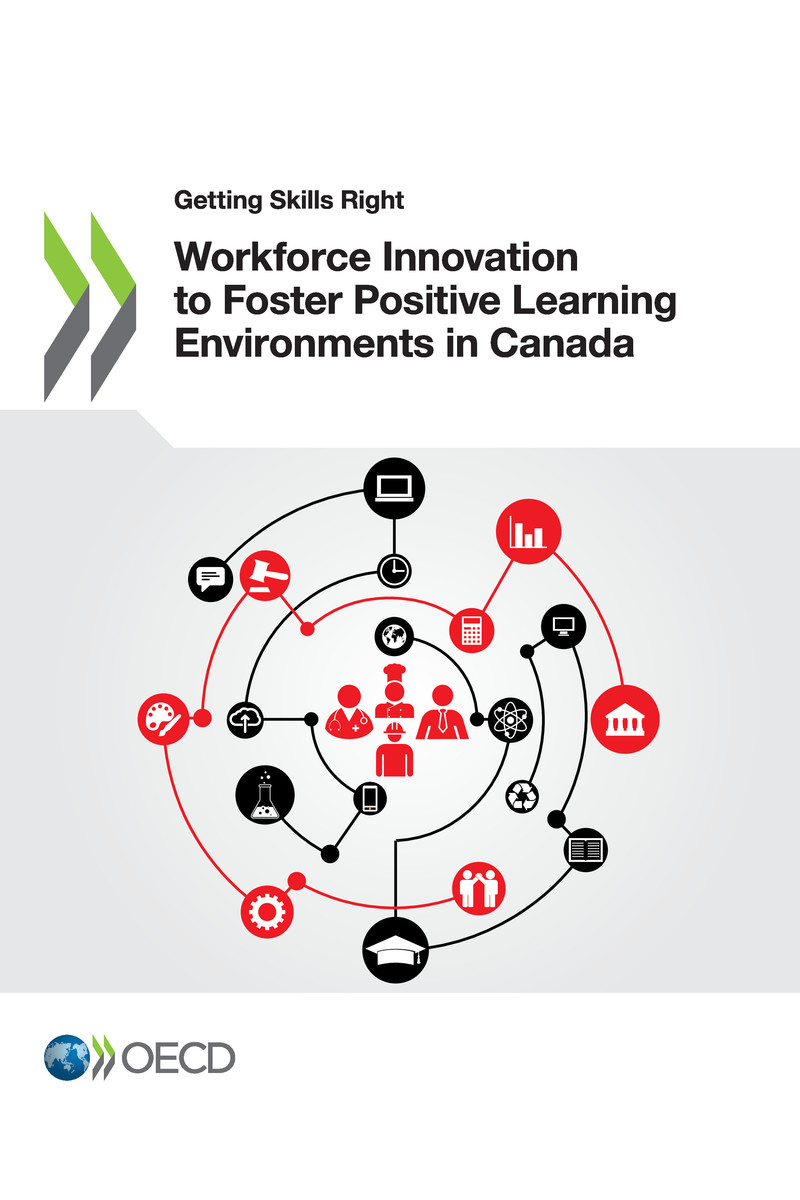
OECD (2020), Workforce Innovation to Foster Positive Learning Environments in Canada , Getting Skills Right, OECD Publishing, Paris, https://doi.org/10.1787/a92cf94d-en .
The world of work is changing. Digitalisation, globalisation, and population ageing are having a profound impact on the type and quality of jobs that are available and the skills required to perform them. The extent to which individuals, firms and economies can reap the benefits of these changes will depend critically on the readiness of adult learning systems to help people develop and maintain relevant skills over their working careers.
To explore this issue, the OECD Directorate for Employment, Labour and Social Affairs has undertaken an ambitious programme of work on the functioning, effectiveness and resilience of adult learning systems across countries. This includes the creation of the Priorities for Adult Learning (PAL) dashboard for comparing the readiness of each countrys adult learning system to address future skills challenges, as well as a cross-country report, Getting Skills Right: Future-Ready Adult Learning Systems , which showcases relevant policy examples from OECD and emerging countries. The Directorate is also carrying out a series of in-depth country reviews of adult learning systems to offer a comprehensive analysis of the key areas where policy action is required.
This report considers how two new skills-related programmes in Canada Future Skills and the provincial workforce innovation centers might improve the future-readiness of Canadas adult learning system. Chapter 1 presents an overview of the Canadian labour market context and an assessment of how the adult learning system performs in international comparison. Chapter 2 examines how the new programmes might influence the future-readiness of Canadas adult learning system along five dimensions: coverage and inclusiveness; alignment of training with labour market needs; impact on labour market outcomes; finance; and governance and coordination. Chapter 3 reviews international experience in promoting high-performance work practices, and suggests how Canadas new skills-related programmes could stimulate good practice in this area.
Katharine Mullock from the Skills and Employability Division of the Directorate for Employment, Labour and Social Affairs was the main author of the report. Natasha Yokoyama, also from the Skills and Employability Division, contributed valuable research assistance. The work was carried out under the supervision of Glenda Quintini (manager of the Skills Team) and Mark Keese (Head of the Skills and Employability Division) and benefited from helpful contributions from members of the Skills team. Special thanks are due to the many Canadian stakeholders who participated in OECD meetings during the October 2019 visit to Canada, and who provided documentation and comments that were crucial inputs to the reports production. The data provided by Tahsin Mehdi (Statistics Canada) from the 2016 General Social Survey are also gratefully acknowledged.
This report is published under the responsibility of the Secretary General of the OECD, with the financial assistance of Employment and Social Development Canada. The views expressed in this report should not be taken to reflect the official position of OECD member countries.
Font size:
Interval:
Bookmark:
Similar books «Workforce Innovation to Foster Positive Learning Environments in Canada»
Look at similar books to Workforce Innovation to Foster Positive Learning Environments in Canada. We have selected literature similar in name and meaning in the hope of providing readers with more options to find new, interesting, not yet read works.
Discussion, reviews of the book Workforce Innovation to Foster Positive Learning Environments in Canada and just readers' own opinions. Leave your comments, write what you think about the work, its meaning or the main characters. Specify what exactly you liked and what you didn't like, and why you think so.

